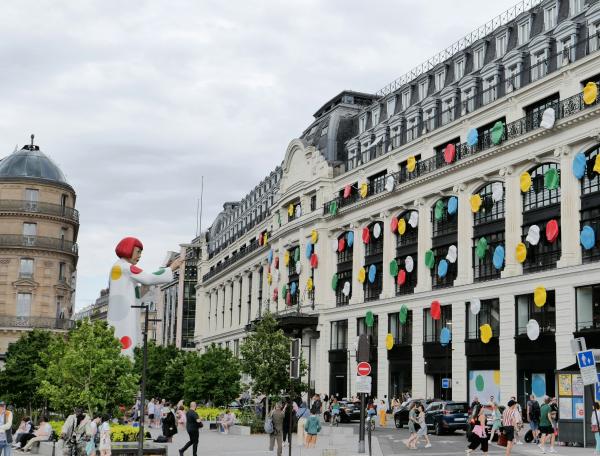Unexpected Sales Drop For LVMH Underscores The Luxury Sector’s Challenges In 2024

LVMH’s reputation has long been one of a luxury giant that somehow weathers economic storms better than its competitors. This makes it all the more startling a story that for the three months to the end of September, group revenues fell to €19.1 billion (£16 billion) – a 3% decline compared to a year earlier.
Furthermore, the French conglomerate’s fashion and leather goods division – widely seen as a bellwether for the luxury goods industry – saw its sales decline by 5%.
Those aren’t figures that constitute disaster for the Louis Vuitton owner’s annual revenue. However, such pronounced stagnation in the group’s fashion and accessories portfolio does indicate the sector may now be undergoing a more challenging period, after a golden age of growth in recent years.
Even LVMH can no longer avoid certain pressures
Brands from the LVMH stable were highly visible during the summer Olympics in Paris, which adds to the sense of surprise that the booming sales predicted by analysts didn’t happen.
LVMH – which counts such brands as Moët Hennessy, Dior, Givenchy, Celine, and Fendi under its banner – has historically been able to achieve strong growth through strategic price increases, the creation of highly desirable niches, and expansion into new markets.
The company’s sales downturn, though, indicates that such factors as inflation and the cost-of-living crisis, as well as perceptions of luxury brands not being sufficiently innovative, might be exerting their effects on LVMH.
Questions have been asked as to whether high-end brands might be presiding over an increasing disconnect between luxury products and consumer demand. The last five years have seen the prices of luxury handbags and accessories almost double, resulting in a sharper divide between consumers’ aspirations and their ability to afford such products.
The Asian component also appears to be a strong one. While China was long a major growth frontier for prestige brands, the recent economic pressures on Chinese customers haven’t left them with much room for discretionary luxury expenditure. This has been borne out in Chinese customers spending less on LVMH’s cognac, designer handbags, and clothes.
A cautious time for the high-end goods sector
Recent performance data from other parts of the luxury industry tells its own story, backing up the consultancy Bain’s forecast a few months ago that sales of personal high-end goods could be flat in 2024.
Kering has already been reporting double-digit declines this year, and is set to unveil its third-quarter results on 23rd October. Hermès will release its figures the following day, although it seems that a more resilient ultra-wealthy client base has enabled the design house to swerve the wider luxury market’s decline so far – its year-on-year group sales went up by 13% during the second quarter.
Still, the surprising turbulence encountered by LVMH illustrates that few things can presently be taken for granted among the world’s prestige brands.
Such an uncertain situation, in turn, underscores the importance of luxury, lifestyle, and fashion players seeking new drivers of growth, online and offline. For an in-depth conversation with us about how our luxury advertising agency could help your own brand achieve sustained growth through the delivery of digital excellence, please contact the Skywire London team today.

Comments